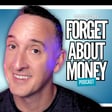
Small Cap Value Investing: Is It Still Worth It in 2025?
Karsten Jeske (Big Ern) and Paul Merriman engage in a lively debate about Small Cap Value Investing versus Broad Market Strategies.
Should you tilt your portfolio toward small-cap value to capture a potential risk premium, or is sticking with broad-based funds like VTSAX the more reliable approach? With decades of financial expertise, Karsten and Paul offer opposing yet insightful perspectives to help you refine your long-term investment strategy.
Watch and Subscribe on YouTube
In This Episode, We Discuss:
1️⃣ Small Cap Value Premium: 📜 Historical data and its implications for modern portfolios.
2️⃣ VTSAX vs. Small Cap Value: ⚖️ Should investors embrace simplicity or pursue specialization?
3️⃣ Risk Premium Debate: 🎢 Does small-cap value justify the added risk in today’s market?
4️⃣ Sequence of Returns Risk: ⏳ The dangers of timing when withdrawing in early retirement.
5️⃣ Market Timing vs. Buy-and-Hold: 🎯 Are disciplined investors better off avoiding tactical shifts?
6️⃣ Portfolio Construction Tips: 🏗️ Allocating assets for growth, diversification, and resilience.
7️⃣ Nuances in Factor Investing: 🔬 Exploring quality screens, value premiums, and active management.
🔗 Paul Merriman's Links:
🌐 Merriman Financial Education Foundation
📊 Quilt Charts (Referenced in the Episode):
📺 YouTube Video Explaining the Two Charts
Graph 1: 4 US Asset Class Indexes & 4 Fund Combo Relative Return Ranking (1928-2023)
Graph 2: Asset Classes & 4 Fund Combo (1928-2023) - Return Rank Frequency
🔗 Karsten’s Links:
📊 Recent Post on Small Cap Value
🔗 David’s Links:
🍏 Forget About Money on Apple Podcasts
🎧 Forget About Money on Spotify
#retirement #investing #smallcap #paulmerriman #karstenjeske
🎧 Listen & Subscribe: Don’t miss future episodes where we explore the best investment strategies, financial independence, and wealth-building insights. Hit subscribe and tap the bell 🔔 to stay updated!
📜 Disclaimer: This podcast is for entertainment and informational purposes only. It is not financial advice. Always consult a qualified financial advisor before making major financial decisions.

